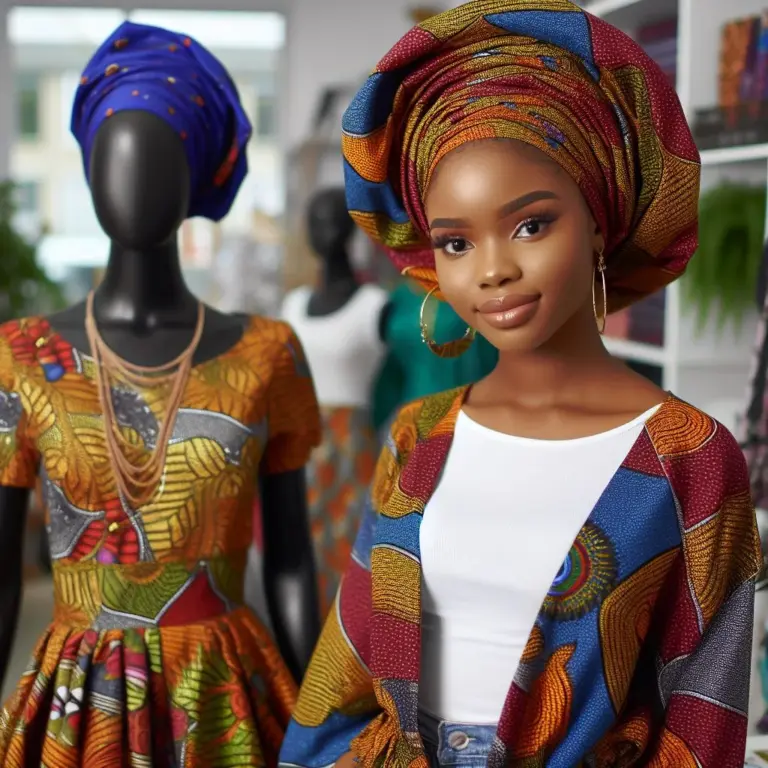As the Nigerian fashion industry gains traction, stakeholders are optimistic about its rapid growth, with global investors and designers increasingly eyeing the country due to its local labor capacity, cost-effectiveness, and rising technical standards.
Bukola Ajani, the President of the Association of Women in Fashion Tech (AWIFT), revealed in an exclusive interview with The PUNCH that Nigeria is rapidly emerging as a prime destination for garment production and fashion technology. She attributed this rise to recent economic shifts and targeted government policies.
Connecting Africa to Global Markets
After her recent participation in the Afrikan Wedding Fair in Finland this March, Ajani highlighted the growing interest in Nigerian fashion. She emphasized the need to connect African fashion entrepreneurs to European markets and stated, “We participated in the fashion runway and signed a collaboration agreement for knowledge transfer.”
The collaboration between AWIFT and European partners includes a three-phase training program that will provide technical instruction in Nigeria, along with mentorship. The final phase will see select participants travel to Europe for practical training.
“We’re introducing a train-the-trainers program that will equip local professionals with the expertise to transfer knowledge to future generations. European experts will provide hands-on training in Nigeria, and later follow up with remote sessions,” Ajani explained.
The initiative aims to enhance Nigeria’s fashion sector and run through 2025, starting in June with follow-up training scheduled for September and October. In early 2026, the first group of trainees will travel to Europe for practical experience.
Technology is Revolutionizing the Sector
Ajani also stressed the transformative role of cutting-edge technologies like AI-based design tools, CAD for 3D prototyping, and AR-powered virtual runways in reshaping the African fashion landscape. “They are bringing technology to every stage of the garment production process, setting us apart in the global fashion tech scene,” she noted.
Economic Factors Driving Local Production
Ajani credited the devaluation of the naira and increased import tariffs on finished garments as key factors pushing more Nigerians to embrace local production. “Before, we relied on imports from countries like China and Turkey. But now, with high import costs, producing locally is far more cost-effective,” she explained.
She also pointed out that the reduced cost of labor in Nigeria makes it an attractive option for foreign investors seeking more affordable production hubs. “For foreigners, Nigeria offers cheaper labor, especially with favorable exchange rates,” she added.
Ajani believes that with the rapid improvement in Nigeria’s technical standards, the country is well-positioned to meet the growing demand for high-quality, export-ready fashion.
AfCFTA: A Game Changer for Nigeria’s Fashion Industry
The African Continental Free Trade Area (AfCFTA) has added to Nigeria’s allure as a manufacturing hub. Ajani sees it as a key catalyst for growth, saying, “The AfCFTA will allow foreign investors to access other African markets with ease, giving Nigerian fashion a larger platform.”
She also mentioned that local manufacturers are benefiting from a decline in imported garments. “Some importers are now bringing their samples to us for local production. It’s an exciting time for the fashion industry,” she added.
A Call for Government Support
Ajani, who also serves as the Chief Executive Officer of Garment Consult, called for sustained government support, particularly through policies that foster local production and encourage international partnerships. “This is how Nigeria can become a hub not just for fashion but for fashion tech as well,” she urged.
International Collaboration for Growth
In line with Ajani’s sentiments, Michael Dada, President of the Central Eastern European and West African Business Association, echoed the growing shift in global production hubs. “As production costs in traditional Asian hubs rise, companies are increasingly looking to Africa as a more cost-efficient alternative,” Dada said.
Dada, who co-organized the Afrikan Wedding Fair, revealed plans for an Afro-EU Fashion Summit in Lagos, aiming to foster stronger collaborations between African and European fashion sectors. The summit will also focus on fashion training, technology integration, and marketing strategies.
Showcasing African Creativity and Commerce
Omolara Odediran, the organizer of the Afrikan Wedding Fair, noted that the event provided a platform to showcase African culture, creativity, and commerce. “The fair was an opportunity to give African businesses, especially in fashion, greater visibility,” she said.
The fair’s primary goal was to empower the immigrant community in Finland, creating opportunities for partnerships and establishing a business directory to support African entrepreneurs.Conclusion
The Nigerian fashion industry is undergoing a remarkable transformation, driven by innovation, government policies, and international collaboration. As global demand for African fashion rises, Nigeria is poised to lead the continent’s charge, positioning itself as a key player in both fashion and fashion technology.

